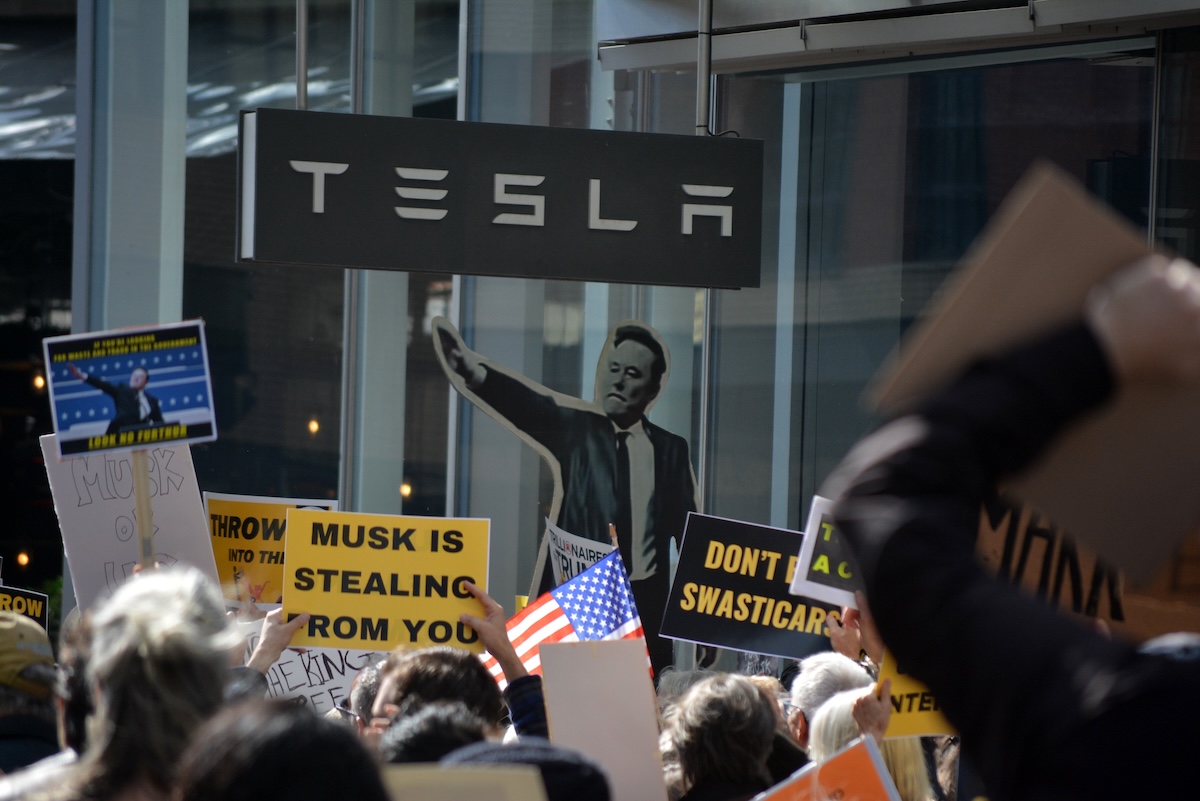
The fallout from Elon Musk’s political pivot is hitting Tesla (TSLA) hard in Europe, with the electric carmaker seeing higher-than-expected sales drops across key European markets.
In France — one of Europe’s largest EV battlegrounds — Tesla registrations plunged 67.2% in May and 47% year-to-date, according to PFA, a national auto industry group. Just 721 vehicles were registered for the month.
Tesla registrations also dropped 68% in Portugal, 36% in the Netherlands, 30.5% in Denmark, and 19% in Spain.
While demand for EVs has dropped as a whole across Europe, Tesla’s slump is far worse, and many point to Musk himself as the problem.
Musk’s increasingly partisan persona and his alignment with the Trump administration have effectively alienated progressive-leaning buyers, once key to Tesla’s brand identity. His stance on the Russia-Ukraine war didn’t help either.
As Investors Observer previously reported, Tesla is now facing what some call a “brand crisis,” with others going further, labeling it a consumer revolt.
The silver lining is that Musk seems to have taken the hint. He has since distanced himself from DOGE and pledged to spend more time steering Tesla.
📉 The earnings shock
Tesla’s wake-up call came during its Q1 earnings report when the company missed analyst expectations across the board.
Automotive revenue fell 20% from a year ago. Total revenue dropped 9%. Net income cratered 71% to $409 million — or just 12 cents per share — down from 41 cents the year prior.
In response, Musk vowed to get back to basics: cheaper EVs, faster delivery timelines, and finally pushing forward the company’s long-awaited robotaxi ambitions.
But not everyone’s convinced the rebound is coming.
“Tesla has lost its product edge,” said GLJ Research’s Gordon Johnson, citing rivals with better specs and designs. And despite the DOGE exit, Johnson added, Musk “continues to spend far more time on Twitter than he does on Tesla.”
TSLA has clawed its way back above a $1 trillion market cap, rising 58% from April’s low, but it remains down 7.5% on the year.
Your email address will not be published. Required fields are markedmarked